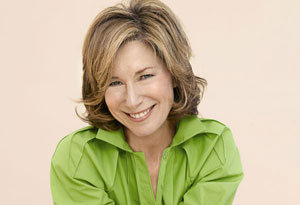
Photo: Patrik Andersson
Where to Spend—and Save!—Your Money When It Comes to Your Looks
Thrifty readers often ask: "What's worth spending a little extra money for, beauty-wise, and where can I save?" Here's what I'm happy to lay out my own hard-earned cash for, and what I can live without. WORTH A FEW EXTRA BUCKS
1. Foundation. Though you can get a great foundation in a drugstore, if you find it hard to make the right color match, a department store (and a slightly higher price) is the way to go. You'll be able to try on different shades and then walk out to the street to see how they look in natural light. Bring a small mirror, and be prepared to be shocked by the amount of down on your face. I tell you this from experience.2. Tweezer and eyelash curler. A good tweezer has just the right amount of tension between its prongs so that you get a clean grip, and a sharp, well-defined tip, says makeup artist Emily Kate Warren. (Our hands-down favorite: Tweezerman Slant, $20; the company also offers free sharpening.) I treat my good tweezers like my favorite pair of earrings: I always know where they are. A good eyelash curler (like the Shu Uemura, $19) has firm curling pads with rounded edges to crimp lashes at a soft angle and is just the right shape so that it won't pinch your delicate eye-area skin.
3. Laser treatments for hyperpigmentation. Creams containing hydroquinone can, over time, fade age spots caused by sun damage and even out the complexion, but the Q-switched lasers (ruby, Nd: YAG, and alexandrite) and the Fraxel dual laser work more quickly and effectively, says Roy Geronemus, MD, clinical professor of dermatology, New York University Medical Center. If seeing spots really darkens your days, these laser treatments will lighten them. One to three treatments are usually necessary, at $400 to $700 per session for Q-switched lasers, and $750 to $1,500 for the Fraxel dual.
4. Prescription retinoids. If I'm going to use a night cream, I want to know it works. Prescription retinoids contain retinoic acid, the vitamin A derivative that improves skin texture and increases cell turnover and collagen production. Over-the-counter products contain retinol, which must be broken down into retinoic acid in order to be effective, and it's generally hard to tell how much breakdown occurs—and consequently how effective the product is, says Debra Luftman, MD, a Beverly Hills dermatologist. (If your skin is very sensitive, though, a retinol product might be your better bet.)
NEXT: Items to save your money on

Photo: Patrik Andersson
SAVE YOUR MONEY
1. Treatment cleansers. True, a formula with salicylic acid or benzoyl peroxide can help with acne-prone skin; one with glycolic acid can reveal smoother skin through exfoliation, says Susan Taylor, MD, founding director of the Skin of Color Center at St. Luke's–Roosevelt Hospital Center in NYC. But cleansers boasting antioxidants or vitamins will likely have no effect on your complexion. Those ingredients work only when they penetrate the epidermis, not when they have brief contact with your skin.2. Slimming creams. I think it's lovely that hope springs eternal in the human breast. Except when a woman tells me she spent money on a slimming cream. There's no FDA oversight of over-the-counter cosmetic skincare products, so you never know whether the stuff in that $60 jar or tube will do anything for you. Caffeine and other ingredients are often combined in these creams to temporarily plump the skin's surface, making it appear smoother and slightly reducing the appearance of cellulite, says Cheryl Burgess, MD, medical director of the Center for Dermatology and Dermatologic Surgery in Washington, D.C. But whatever results you get will be minimal.
3. Facials. A facial can be terrifically relaxing and give you a temporary glow. But you don't need one to have gorgeous skin. Better to invest in a daily skincare system (with sunscreen) that exfoliates, moisturizes, and provides antioxidant benefits (like smoother, brighter skin) from vitamins A, C, or E, says Susan Evans, MD, chief of dermatology at Cosmetic Physicians of Beverly Hills. And, says Evans, if you have acne, rosacea, eczema, or hyperpigmentation, the extractions and peels sometimes performed during a facial can actually worsen your condition.
Ask Val your questions about makeup, skincare, or haircare.
NEXT: How to save money on skincare
As a reminder, always consult your doctor for medical advice and treatment before starting any program.




